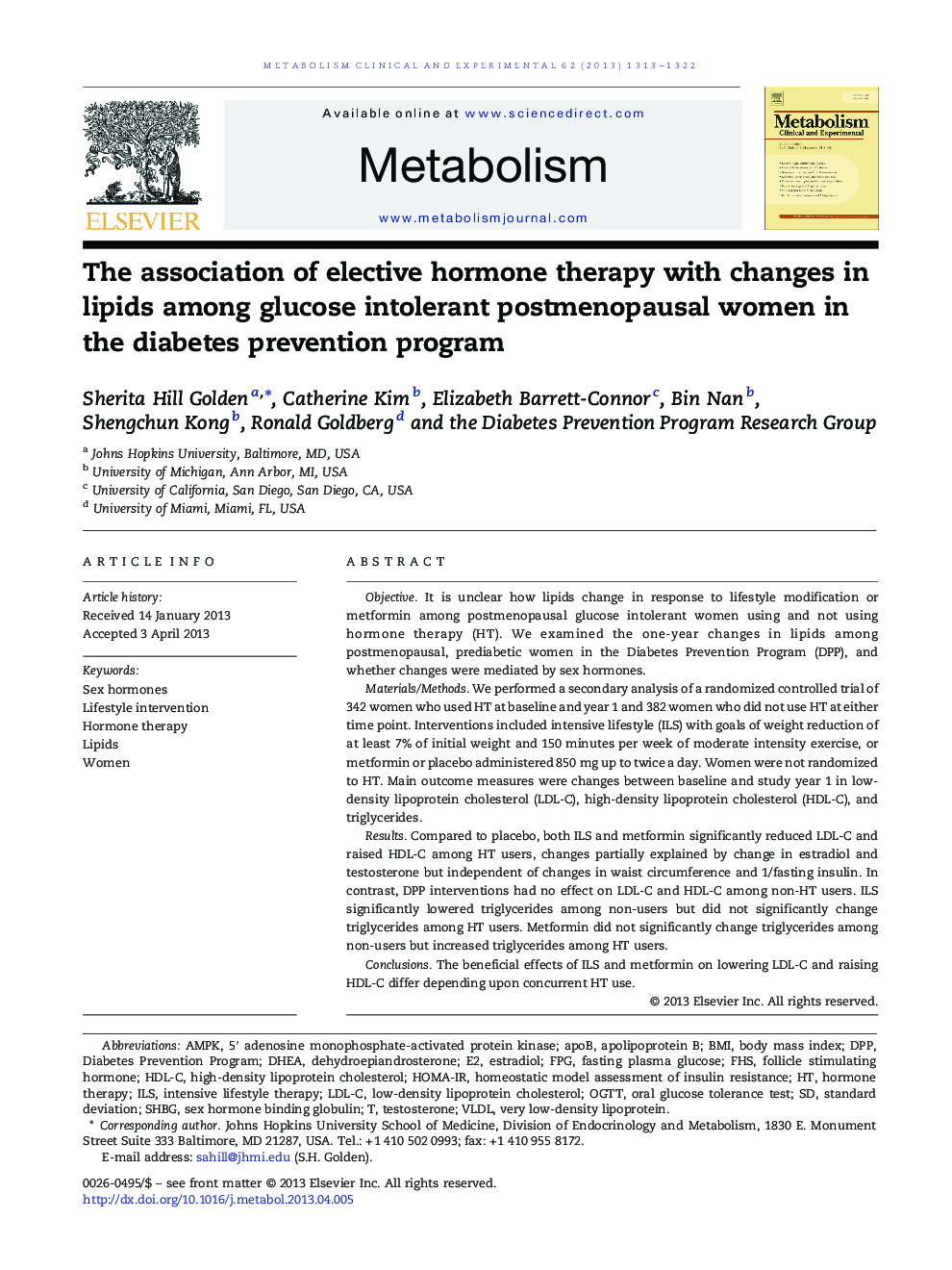| Article ID | Journal | Published Year | Pages | File Type |
|---|---|---|---|---|
| 5903578 | Metabolism | 2013 | 10 Pages |
ObjectiveIt is unclear how lipids change in response to lifestyle modification or metformin among postmenopausal glucose intolerant women using and not using hormone therapy (HT). We examined the one-year changes in lipids among postmenopausal, prediabetic women in the Diabetes Prevention Program (DPP), and whether changes were mediated by sex hormones.Materials/MethodsWe performed a secondary analysis of a randomized controlled trial of 342 women who used HT at baseline and year 1 and 382 women who did not use HT at either time point. Interventions included intensive lifestyle (ILS) with goals of weight reduction of at least 7% of initial weight and 150Â minutes per week of moderate intensity exercise, or metformin or placebo administered 850Â mg up to twice a day. Women were not randomized to HT. Main outcome measures were changes between baseline and study year 1 in low-density lipoprotein cholesterol (LDL-C), high-density lipoprotein cholesterol (HDL-C), and triglycerides.ResultsCompared to placebo, both ILS and metformin significantly reduced LDL-C and raised HDL-C among HT users, changes partially explained by change in estradiol and testosterone but independent of changes in waist circumference and 1/fasting insulin. In contrast, DPP interventions had no effect on LDL-C and HDL-C among non-HT users. ILS significantly lowered triglycerides among non-users but did not significantly change triglycerides among HT users. Metformin did not significantly change triglycerides among non-users but increased triglycerides among HT users.ConclusionsThe beneficial effects of ILS and metformin on lowering LDL-C and raising HDL-C differ depending upon concurrent HT use.
